Today's guest Ginger Myrick refers to herself as "accidental author of romantic historical fiction". She later refers to herself a "not an author in the true sense of the word." Her self-deprecating humor is absolutely charming, and the work behind that coy facade is truly spectacular. Please join us as she discusses the process behind winning a contest and what it means to write clean fiction for modern oversexed readership.
MJN: You are the winner of a Rosetta Literary Contest 2012. What kind of
preparatory legwork did you have to do in order to submit to it? Would you say
that the victory propelled your career to the next level?
GM: The contest came up a couple of months
after I published my debut novel, El Rey. The book is almost 600 pages,
and there are complete backstories for four of the characters incorporated in
the overall body of the work. The contest asked for a max of 11K words, so I
pulled the section of the main character's father, who is a Converso--a Jew
forcibly converted to Catholicism--and with a little editing, it became my
submission for the contest. The prize was a professional cover and translation
of the work into Spanish, which seemed tailor-made for my story as it takes
place in 15th century Castile (modern-day Spain.) As far as reaching the next
level, I'm still working on that!
MJN: Let's talk about biography versus brand. In your bio on Amazon it says
that you practice Christian faith. So are you a Christian author, or an author
who happens to be Christian? Also, one of the critics, who gave you a high
rating, pointed out that The Welsh Healer is not a true historical
novel, given the limited references to historical events, but rather a
paranormal novel set in the past. Do you agree with that assessment of your
work?
GM: When I released El Rey, I didn't
have a clue whether or not it fell within the description of Christian
historical fiction, so I submitted it to someone familiar with the genre. Her
verdict was that it was not, in fact, Christian histfic. Apparently there have
to be more explicit references to God and faith than I had included. I didn't
set out to write a specifically Christian work, so it didn't make any sense to
try to work within those guidelines. Besides, I have found that if I try to
restrict or force my writing, it ceases to flow the way it should. So, in
answer to your question, I guess I am a Christian author whose values tend to
spill over into her work.
As far as The Welsh Healer not
being historical fiction, I think the reviewer was getting at the point that
the book is not based on the life of a documented historical figure, which is
not actually a qualification for the genre. I believe the criteria simply
dictates that the story be set during a distinct era in the past in which the
character is intrinsically a part of that particular time period. I try not to
think too hard about the labeling. The books are what they are.
MJN: Right now I'm reading The Welsh Healer, and one thing that stands
out is the timelessness of the family dynamic. The same story could be taking
place in the 21st century, with several men of the family running off to the
join the military, leaving their family behind. In writing The Welsh Healer,
did you develop the family dynamic independently from the time period?
GM: I am not an author in the true sense of
the word. I never consciously sit down and plot out any part of my stories. The
inspirations come as a whole, and I merely record them as they come. Of course,
it's necessary to research the setting to tell the story accurately, but apart
from that, there's very little preparation that goes into my writing process.
Many of the relationships in my stories are modeled after my own family
experiences, so I suppose that accounts for the timeless feel of them. After
all, regardless of the time period or extentuating circumstances, I doubt that
familial interaction has varied much over the centuries. I guess I can count
myself fortunate for all the strong-willed people in my inner circle. I can
honestly say that my homelife is never boring, and it gives me a LOT of
material for my books!
MJN: I am glad that in your bio you stress the difference between clean and
prudish writing. We live in an hyper-sexualized world, where we are bombarded
with messages along the lines of "Cast side your inhibitions and get in
touch with your desires." So unless you are behaving in a very sexually
aggressive manner, you are in danger of being branded a "prude" or
"repressed". People can express tenderness in a very chaste way and
not be sexually repressed. Just as some people can function on 1200 calories a
day, and others need 3500.
GM: Hahahaha! My husband calls me a prude all the time! As for the 'clean' aspect to my books, I write what I would like to read. I am very old-fashioned and happen to believe that the physical expressing of love should be a private thing. I wouldn't like to hear every intimate detail about someone else's sex life, so I don't write it. Besides, I am trying to convey romance, which in my eyes is all about what leads up to 'the deed'. Even so, I still get anxious when I'm writing my love scenes. I always feel like my mother is reading over my shoulder, although in reality she'd probably be telling me to spice it up a bit!
GM: Hahahaha! My husband calls me a prude all the time! As for the 'clean' aspect to my books, I write what I would like to read. I am very old-fashioned and happen to believe that the physical expressing of love should be a private thing. I wouldn't like to hear every intimate detail about someone else's sex life, so I don't write it. Besides, I am trying to convey romance, which in my eyes is all about what leads up to 'the deed'. Even so, I still get anxious when I'm writing my love scenes. I always feel like my mother is reading over my shoulder, although in reality she'd probably be telling me to spice it up a bit!
MJN: I am tickled by the title of your novel about Marie Antoinette - Insatiable: a Macabre History of France. The title sounds almost more appropriate for a non-fiction book. The name of Marie Antoinette is not mentioned in the title. Did you intend to shift the spotlight from the ruler to the country itself?
GM: This was completely unintentional and
actually just a reflection of my indecision. Insatiable: A Macabre History
of France is actually the name of the series. The subtitle should have read
L'Amour: Marie Antoinette-Volume II. At the time I thought I would only
have enough for a trilogy, but my aspirations for the series have grown since
then. It's turning out to look more like 7 or 8 books, starting with Catherine
de' Medici (my work in progress) and moving forward through at least Napoleon.
But I'm not going to go full force into
the Insatiable series yet, because the book didn't quite sell the way I
thought it might. The Welsh Healer is my best seller, so it would be
smart to capitalize on that momentum. I had always planned to write a sequel
about the aunt, Briallen, and her relationship with the Black Prince, but now I
want to add a third book and turn the story into a trilogy. As soon as I finish
my Catherine de' Medici book, I will get started on The Welsh Prophecy
and hopefully have it out in time for Christmas!
In closing I'd like to thank you,
Marina, for hosting me and also the readers who stopped to check out the
interview. Without your interest and support, I could not continue to write.
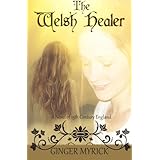
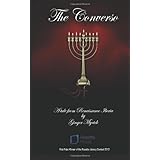
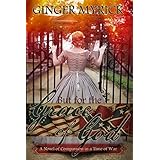
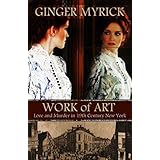
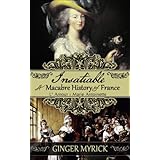
Thank you again, Marina. The interview was a complete pleasure, and I am ever grateful for your time and attention.
ReplyDelete